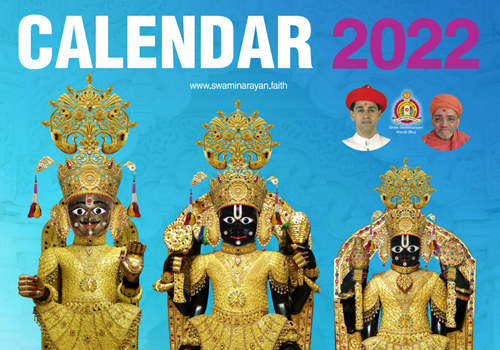There was an occasion of marriage in a house. It means it was the occasion of joy. People would apply fragrant and turmeric powder on the bridegroom at the time of marriage. The bridegroom would sit on a horse-back and there will be a marriage procession. This procession would go to the bride's house. A small square pendal with an altar is prepared where the bride and bridegroom would marry. The priest would chant some religious words. On one side of this square pendal bridegroom's relatives would be seated and on the other side bride's relatives would sit. Both the sides will start singing nasty, obscene, songs (FATANA).
Shriji Maharaj saw this. He said: “Marriage is a holy occasion. No such nasty and obscene songs are proper”. He ordered the saints: “Compose such songs as could be decently sung on such an occasion”. Swami Muktananda and others composed the songs of Radha-Vivah and Rukshmani-Vivah. Thus the nasty and obscene marriage songs disappeared. On the marriage occasion the songs of Radha-Vivah and Rukshmani-Vivah took place instead. They are sung even at present.
Shriji Maharaj used to take keen interest in every sphere of human activity. There are various festivals such as Holi, Diwali, Rama Navami and Janmashtami. Maharaj has directed us how to celebrate each festival. Marriage is also such kind of festival in the man's life. But many bad customs had entered on the marriage occasion. Fatana - the use of nasty and obscene marriage songs - was one of them. Shriji Maharaj abolished this bad tradition and brought purity in the society.
